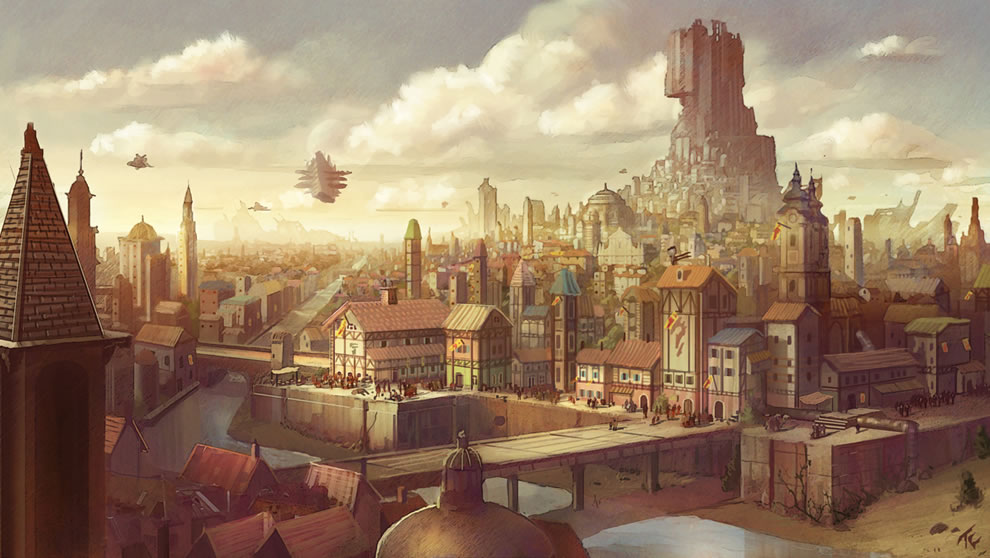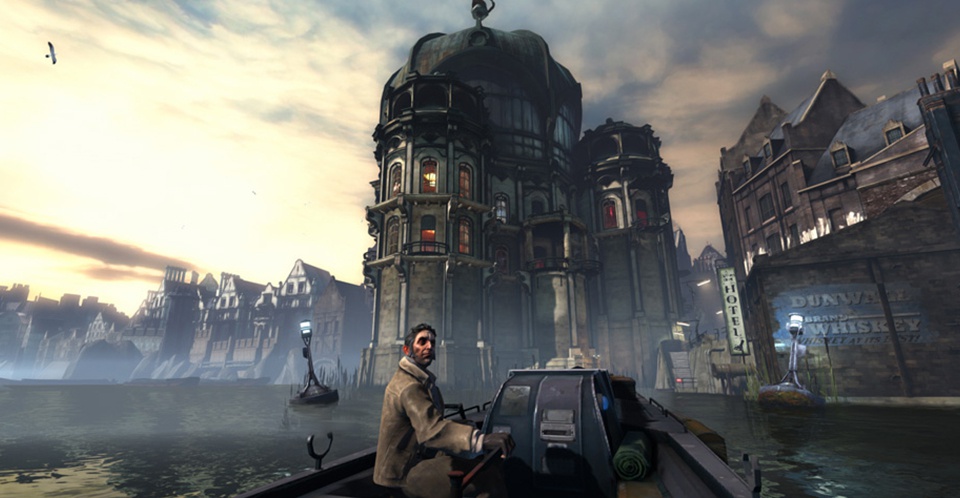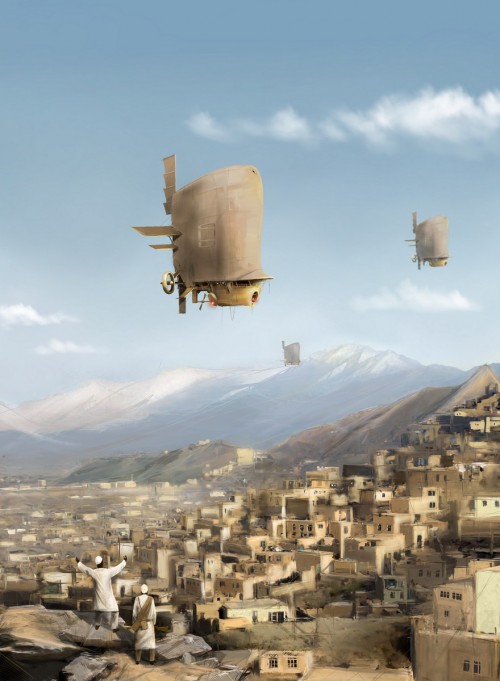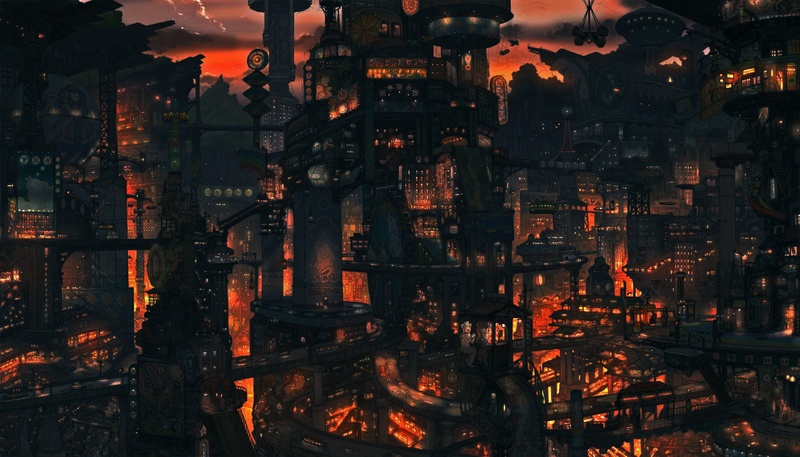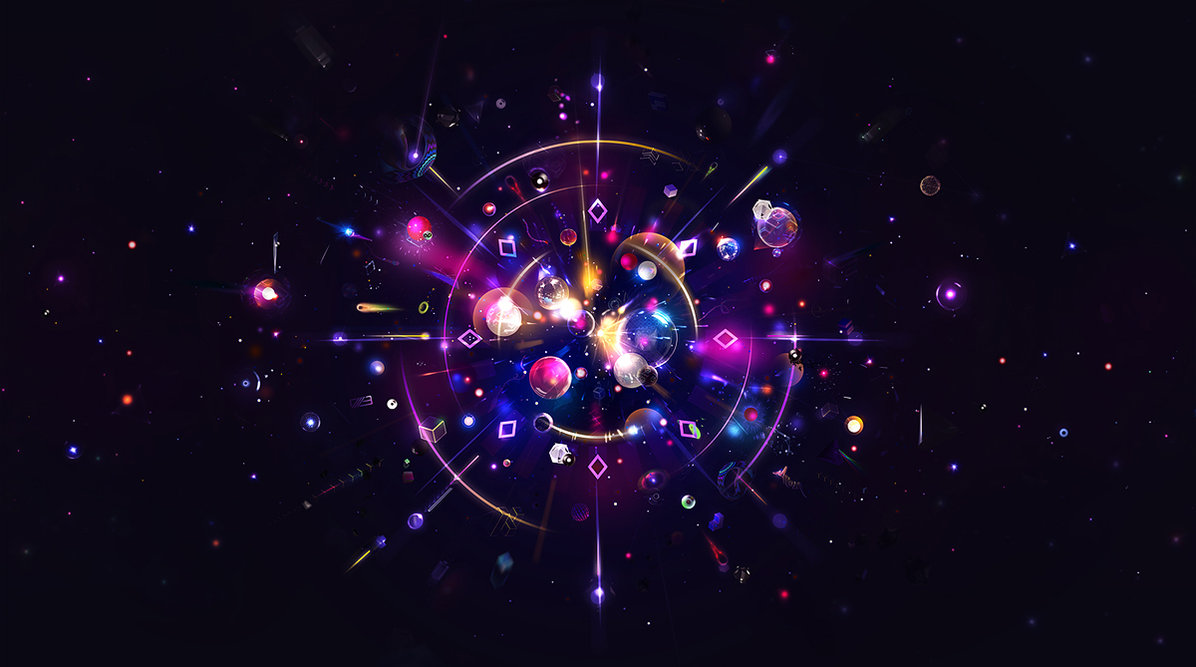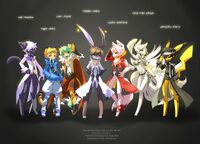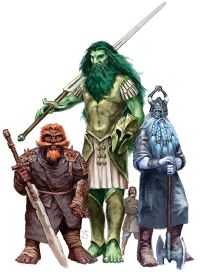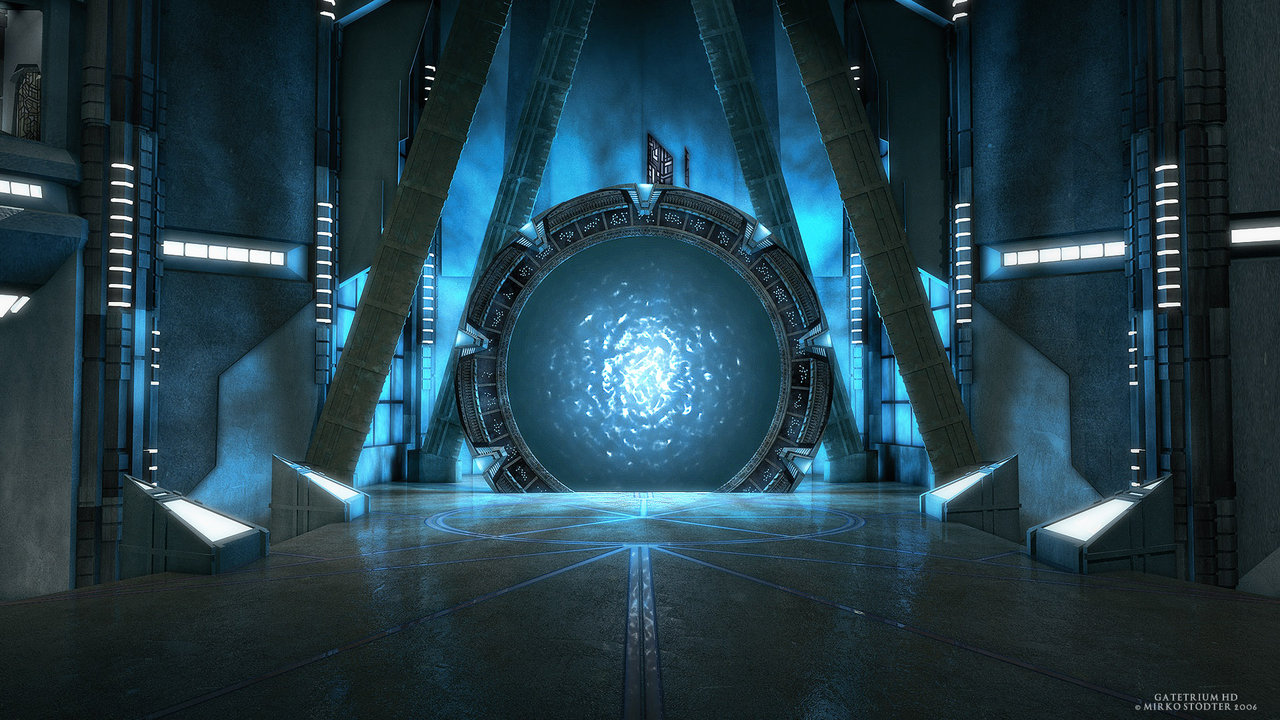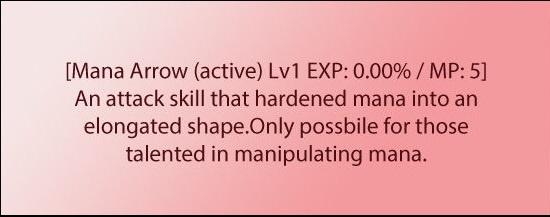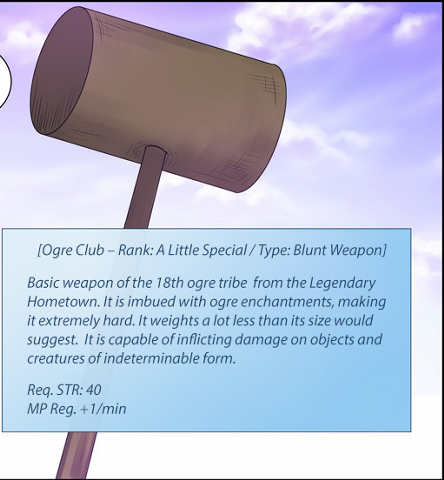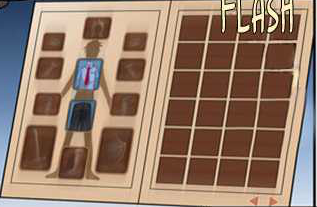Magical Realm Cyoa/Diaspora
Diaspora[edit]
Realm Name: Diaspora
Realm Wizard: Xanatos
Population: 250 Million humans within the primary cities and surrounding areas. Additional settlements are believed to be spread throughout the various realms or deep in the wilds, but there is no data on the numbers available.
General Description: Numerous dyson-sphere-like constructs linked by magical portals which connect in a manner similar to Stargate. Most areas are comprised of a single or small number of similar/linked biomes. All areas are infested by monsters, dungeons and hazards of all forms.
The Build[edit]
Complications - Notorious! [125]
Demiplanes - Area Increase 8 [110]
Planar Features - Gateways 2 [107]
Planar Features - Division [105]
Planar Features - Assimilation [102]
Population - Population Increase 6 [90]
Inhabitants - Extrahuman Population [86]
Inhabitants - Metahuman Population [82]
Technology - Technology Upgrade 2 [80]
Magic - Magical Upgrade 3 [74]
Society - Public Education [73]
Society - University [71]
Society - Industrial [68]
Society - Mystical [64]
Society - Technomagic [59]
Society - Sanitation [58]
Society - Healthy [57]
Culture - Intellectual [56]
Culture - Gaming [55]
Culture - Occult [54]
Culture - Sexual [53]
Environment - Cosmic Adjustment [51]
Environment - Landscape Adjustment [48]
Environment - Fertile [47]
Environment - Rich [45]
Environment - Exceptional Materials [42]
Environment - Magical Phenomena [39]
Environment - Flora & Fauna 3 [34]
Adventure - Dungeons 3 [29]
Adventure - Afterlife [26]
Adventure - Malice [25]
Adventure - Theme [21]
Personal - Spirit Walk [18]
Personal - Shape Shift 2 [13]
Powers - Levitation [12]
Powers - Enchanting [10]
Ascendance - Divine Spark [0]
History and Overview[edit]
In the times of myth and legend, Diaspora was a single realm. A magical plane of vast landmasses, huge seas, flying islands that followed the tradewinds, and a single star which never rose or fell in the sky, but always burned brightly directly above, no matter where one lived. In those long-lost times, the world was a peaceful place, with prosperity and happiness everywhere. Magic was known to exist, but there was no great need to explore the intricacies of spells and enchantments, and even less need to go beyond basic agriculture and metalworking. The land was fertile and rich and ripe with all the best things. There was one people who were masters of the land, and all was well.
Then, came the breaking. Great rifts appeared in the land and sea, swallowing whole nations and sundering continents. Trade became impossible, and the great floating isles were tethered for fear they would slip through these great rents in the world. The many scholars of the time gathered and discussed, but could find nothing in the histories or the world, nor could they understand what was happening with their meagre sciences. The greatest mages of the time cast their strongest divinations, and learned only that the world was ending due to the actions of one being - a semi-divine entity called Xanatos.
The great realm of Diaspora was torn apart, the peoples of the realm sundered as surely as the lands. Each land closed off from the others, most of them trapping a piece of the once great sun, and getting some portion of the rich resources as well as some portion of the people. In the end seven great realms were formed, with a hundred smaller, lesser worlds interspersed among these. Each of these pocket realms was connected to the others by a powerful artifice called a Portal, and each realm got at least one of these portals. Though magical travel is possible without the use of the portals, it is exceptionally difficult.
But this was not the end of the Diasporan people's troubles. Suddenly, the once peaceful land became harsh and dangerous. The tamed beasts of the wild lands became feral and fearsome. The plants became vicious, often poisonous or barbed or capable of lashing out. The weather of the spheres was no longer mild, and even the land itself twisted into mazes, mountains and other difficult terrains. The whole world had turned against the Diasporan peoples, forcing the once peaceful and calm natives to struggle for survival, and struggle hard.
Millennia have passed, and the world has become more harsh, not less. The people have adapted to their environment, becoming strong and fierce, intelligent and crafty. In each realm, the people are subtly different - travel between the realms happens infrequently, and the pockets of people have started to become racially divergent, each group adapting to the unique conditions of their own realm. The worlds have also adapted to the people, becoming more dangerous as the people grow in strength. In many of the scattered realms, the people have been hunted to extinction by fierce predators or have died off to natural hazards. In these pocket worlds, nature runs wild in the ruins of abandoned and forgotten cities and great beasts hoard the last remnants and treasures of lost peoples.
While some of the Diasporan people are cut off from the main populated worlds, the majority live in or near one of the Seven Cities, each in one of the greater realms, which are connected by fiercely guarded portals in those realms. The Seven Cities trade with each other, and the lesser realms, and grow wealthy and powerful from this trade. The founding of these cities is considered the beginning of modern history, and saw the beginning of the slow rise of magical, technological and technomagical progress.
For most of the people of Diaspora, the world is a mildly dangerous place, equally full or wonder and challenge, a place where they can grow strong and learn to thrive despite adversity. Yet every one of them, in some deep part of their heart, yearns for the peace and gentle carelessness of the times of myth. And so each one curses the name of Xanatos.
The Realms[edit]
There are seven greater realms, and roughly two hundred lesser realms. Each of these pocket realms has effectively the same cosmology as all the others, but differences in details result in wildly diverse conditions and biomes.
Each realm is effectively a Dyson Sphere - a shell of land, like a hollow planet, with a sun in the center and habitable land on the inner surface of the bubble. However, not every realm is a perfect sphere - many of the realms are oblate spheroids (slightly squashed balls), pseudo-cylinders with different levels of curvature, or occasionally even hourglass or stranger shapes. Just as importantly, different realms have different amounts of resources in them - some realms have larger 'suns' resulting in higher temperatures, some have more water or less earth, and some are even nearly-airless. While it is possible to equalize most of these elements through the portals, the limitations on the use of portals makes it impractical to fix a wildly divergent realm's issues in any reasonable time frame (see portals, below).
The Seven Greater Realms are the largest, and each is roughly half the volume of the earth's sun. The majority of that is open air, though each of these realms has a very thick 'outer' layer suitable for deep mining, and capable of supporting very extensive oceans. The total surface area of any given greater realm is comparable to what Jupiter would have were it not a gas giant - many thousand times more than the paltry land area of Earth. However, the vast majority of that area is trackless wilderness, uninhabited except by feral beasts and fearsome vegetation, pocked with deep caverns full of dangerous creatures and legendary lost treasures. Only the area near the Portal within a Greater Realm has any significant population - though there are scattered outposts and 'lost' tribes in every greater realm.
The Seven Realms are each named after one of the ancient, pre-scattering gods. It is unknown if those gods still live within the realms, if they have since left their broken domain, or if the wicked Xanatos slew them, but all that remains of those great beings are their names and a few legends.
The most prosperous of the realms, with the fairest climate and the largest population, is called Dagos, after the god of gentle storms. It is a nearly perfect sphere, with just the right level of light and heat to grow crops all year round, and enough rainfall to keep fields watered without extensive irrigation. It rains lightly for eight hours out of every twenty four, like clockwork, giving the realm the closest equivalent to a normal day/night cycle as exists within the realms. The farmers of Dagos are among the safest and best protected individuals in the realms, as their grain and produce provides the bulk of food to all seven of the great cities. The greatest danger near Dagos-Ka, the great city of Dagos, are the Rain Drakes - great flying lizards who infest the enormous flying stone islands that wander through the skies of that realm. Whenever one of these flying isles passes over the farmland around Dagos-Ka, hunting parties are called in from different realms to fend off Rain Drake attacks until it is past.
The next most prominent realm is Vander, named for the goddess of calm seas. Though the seas of Vander are legendary for the storms they produce, the island-specked realm is little more than a single vast ocean with the occasional land mass. The great city of Vander-Ka resides on the coast of the largest known land mass, with the city's portal actually residing in a shallow bay. To use this portal, the weather-mages and engimancers use huge water pumps to lower the water level of the bay until the portal is uncovered. Vander-Ka is famous for exporting their finely-built ships, seafood of all kinds, and water to those realms that need to import it.
While it is the least populous of the Seven Realms, Kloth - named for the god of the tended fire - is probably the wealthiest per person. This realm is nearly the mirror opposite of Vander, with little to no surface water anywhere in the realm. The occasional oasis in the vast desert of Kloth is generally treated as an invaluable treasure, its location jealously guarded by the nomadic tribe that discovers it. Despite its inhospitable climate, Kloth is home to the richest and most accessible veins of precious ores - gold, adamntium, silver, mythril, orichalcum and numerous rare earths. These materials are refined by expert smiths and craftsmages and traded to the other realms by the expert merchants of Kloth-Ka for the numerous resources required for survival in the parched realm of Kloth.
While not so harsh of climate as Kloth, the barren and frozen wastes of Pergos - named for the goddess of gentle breezes - are home to some of the hardiest souls in all the realms. The entire realm seems to be covered in enormous mountain ranges, scrubby tundra, and endlessly blowing artic winds. Despite the harshness of this environment, some of the largest and meanest fauna of the realms makes its home in this realm - providing excellent hunting and great challenges to any who would venture into its limitless wilds. Numerous small flying islets which are common to the skies of the realm are used as the foundations for large flying sailing ships, harnessing the ever-howling winds of the realm for fast travel over the mostly-barren wilderness. Not that this is a safe form of travel - the skies are full of Screaming Drakes, Furies and Rocs in addition to the larger flying landmasses pushed to great speeds by the blowing winds. Despite the many dangers, there are few who are friendlier and none who are tougher than the warriors of Pergos-Ka.
The most dangerous and secretive of the great realms is of course Spenet. Named for the god of shadows and hidden places, Spenet is the realm with the smallest 'great' city. Indeed, the entire city is housed within the branches of a single tree. Of course, that tree's branches span a distance of forty miles in nearly every direction from the massive portal embedded in its central upper trunk, but very few of the surrounding trees - each just as large - are even fully explored, let alone inhabited. None venture down to the floor of the world-forest of Spenet, as the ground of that plane is teeming with the most vicious critters in all the realms. These creatures will invade the realm on a seasonal basis, with the occasional surprise attack thrown in just to keep things interesting. The people who live there are ornery, territorial, and quick to resort to violence. A common saying of the Seven Cities is, "Be wary of your purse with a Kloth-Ka merchant, but be polite for sake of your life with a Spenet-Ka toddler."
Paradoxically, the people of Kiroth - named for the goddess of healing balms - are both the kindest and most feared. Because Kiroth has the mildest and least pleasant weather of all the realms - overcast skies with a continuous heavy misting which is not quite rain but which never stops - its people tend to be either very calm and collected, or else completely irrational and prone to sudden violence. Some are both. But that is not what makes the people of Kiroth feared - no, the weather on Kiroth has made the entire plane a single continuous swamp/rainforest, with the most diverse and intricate ecosystem of any realm. It is speculated that there are more kinds of poison in a single acre of Kiroth jungle than exist naturally in all of the other realms combined. Because of this, the average Kiroth-Ka citizen is better trained in medicine, chemistry, and general biology than most specialized healers from other realms. And on top of that, Kiroth-Ka has the single largest guild hall of practising necromancers of any realm - and is the only realm to actively welcome the oft-disliked school of magic. The healers and necromancers of Kiroth-Ka work closely together to manufacture the most potent drugs and medicines of any realm.
Lastly, there is the sunless realm of Tender, named for the god of peaceful death. This realm is perhaps unique in all the realms for having no visible sun without becoming a frozen no-man's land. It is speculated by scholars that Tender does have a sun, but that it is dark - like a lit coal covered in ash, generating heat but no light. The lands of Tender are still and mostly parched, but certainly not devoid of life - indeed, many of the strangest and most fearsome looking creatures in the realms hail from the darkness of Tender. Swarms of eyeless insects, numerous specialized fungi, enormous flying creatures that navigate by sound and many other strange things live there. The city of Tender-Ka is also known as the City of the Damned, because its inhabitants are the outcasts and criminals of the other realms, exiled there as punishments for the most terrible crimes. Doomed never to see the sun again, they must eke out lives in a place lit mostly by burning manure and bioluminescent fungi, though they will often purchase various types of magical illumination in trade for live samples of the plane's various strange creatures or bushels of the tastier kinds of mushrooms grown on the unlit farms.
Beyond the seven great realms are the numerous minor realms. These vary greatly in size, shape and condition, from mostly-liveable spheres the size of a medium gas giant like Neptune, to smallish balls no larger than Mars. The conditions within each realm is unique, and often quite extreme, and no two are entirely identical in disposition of climate and life. No one has gotten a precise count of these as yet, but the number is at least one hundred and sixty, and new portal addresses are discovered each year. Perhaps half of those are known to be inhabited, with the total populous of the realms last summed up as over two hundred and fifty million. For the most part, despite the vast land areas involved, the realms can be considered as a collection of loosely aligned city-states, with the major cities always vying for power and dominance, and the smaller ones either trying to grow or struggling to survive. Those towns and villages that do not have easy access to their realm's portal - which is most of them - tend to be the worst off, since those portals tend to attract strong guardian creatures who must be killed or driven off to get even a small number of people or goods through. Overall, life in one of the minor realms is hard.
The People[edit]
The vast majority of Diasporans live in one of the Seven Great Cities, described above. These are civilized places, well defended and kept free of monsters. While Demihumans are welcome, they are often treated as second-class citizens and as such many choose to live elsewhere, or at the outskirts of the great cities. There are also the group known as the 'Noven'. It is generally hard to tell one of the People from a Noven physically, but mentally there is not a great deal of comparison. A Noven would be considered a natural genius on earth, and many of the greatest genii born as Diasporans are thought to be Noven. While there is some small prejudice for the Noven as a whole among The People, on an individual level they are generally welcomed and well liked, since they tend to be the most skilled individuals in any society. Still, Noven are considered a rarity, because they are nearly always born in one of the lesser realms, or so far into the deep wilds that it takes them half their life to get to civilization.
It is believed that there are significant populations of humans, demihumans and noven in the wilds of all of the realms, even the seven greater realms. This is difficult to prove however, due to the hostile nature of the wilds and the monsters that tend to infest portals in the lesser realms.
Demihumans are divided into seven major races, and innumerable minor ones which are considered variations. The major races and their most distinctive features are as follows:
Monsters include many intelligent races as well, but unfortunately the monstrous races are too far removed from humanity to interact peacefully. While some Demihuman races have an easier time getting along with some Monsters, on the whole Monsters do not associate with beings outside their own or similar forms. For example, a Manticore tribe might be willing to negotiate and trade with a group of Griffons or even some Demons, but they would be far more likely to tear apart a group of Demihumans or Beholders who ventured into their territory. Similarly the Giants of the Realms tend to be on good terms with Ogres and some kinds of Trolls, but they feel they are inherently superior to most other kinds of people and as such tend to be vicious and cruel to mere 'human' scale people.
Of course, not all Monsters are intelligent - most of the beasts of the wild, such as Drakes and Dire Wolves, are just animals with extreme biologies and some innate magical ability. Some monsters are significantly more powerful than the more common members of their race. Such monsters tend to be just below the cusp of true sentience, exceptionally clever and capable, and far more dangerous because of this. These monsters are referred to as 'elites', in the case of intelligent monsters, or 'great' for the non-sentient forms. The monsters that guard portals are almost always of the 'elite' variety.
The Portals[edit]
The portals which connect the worlds are only slightly more numerous than the worlds themselves. These gateways between realms are a fundamental element of the realms to which they are linked. They cannot be moved, destroyed, or unlinked from the realms they are home to. Not so much physical artifacts as fundamental aspects of reality, these portals are about as eternal and integral as a thing can be.
For all that, they are fairly obstinate and inconvenient devices. To operate a portal, one must get to the lowest edge of one to access the control panel. This panel consists of a pad with 17 characters plus a multicolored central button and a pair of green buttons. To operate the portal, one enters a sequence of exactly seven different characters and presses the green button. Entering more or less than seven characters will clear the device. Pressing the multicolored button will clear the device. Entering seven characters that do not correspond to another gate will clear the device.
Fortunately, the gate address of each gate is clearly displayed on the panel - so you will always know the address for your home.
Once a good sequence has been entered, the portal will attempt to connect to another gate. If that gate is in use, no portal will form. If the target portal was accessed from a different portal in the past ten minutes, no portal will form. If the gate that is being used was used in the last ten minutes, no portal will form.
Once a portal does form, it remains open for exactly one hundred seconds. Anything that is not all the way through the portal is left partially in one location, and partially another - this is generally fatal, and at the very least uncomfortable.
Overall, portal travel is regarded has finicky and hazardous - but it is also the only really usable means of getting from one realm to another. It is possible, just, for a single person to transport themselves to one of the realms. But due to the constant fluctuation of the realms, the arrival point cannot be determined in advance. This is regardless of skill, power, capability or what have you. The metaphysics of why this are true are hotly debated, but generally the magic inherent in the realms themselves prevent pinpoint teleportation between them. The result of this is that if two people teleport together from one realm to another, they are likely to end up tens of thousands of miles apart, and neither anywhere near their destinations. This effect also prevents further teleportation into or out of a hundred-mile-radius area of the teleporter's destination, as well as their starting point if it was within Diaspora, which lasts for one hour.
Most troublesome of all, it has been determined that, no matter where the teleporter was intending to land, they invariably end up in some form of dungeon, pit, or other hole which is difficult to escape from. Fortunately, even the most junior of mages capable of the feat of teleporting between realms has reported that they were up to the task of escape, though they all found it difficult. Of course, that was only the ones who made it back...
The Theme[edit]
The people of Diaspora know only that their world is strange, full of danger and magic. They have no real notion that the nature of their world is anything odd. That said, the people of Diaspora live in a world where everything is quantified, where the laws of the universe can be looked up in a book and understood, where magic can be learned quickly and efficiently by anyone capable of affording the materials and with enough strength of will and mental discipline.
Indeed, it is perhaps easier to learn skills and magic in Diaspora than anywhere else - one must simply pick up the correct book, have the right stats, and accept the popup message saying you do wish to learn the skills described within.
Because the theme of Diaspora is that of the Video Game RPG - attributes, skills, spells, HP, MP, all the rest. Everyone in the realm has what amounts to a character sheet, filled in based on their capabilities - or perhaps giving them more direct access to those abilities within the realm? Regardless of how it works, it makes it simple for a person to know themselves, gives their lives structure and allows them to grow through adversity. Because everyone gains attribute points when they level, and learn new skills and gain new classes as they strive to better themselves.
A person can gain access to a class by either being born into it (Child, Noble, Savage, etc.) by striving towards it (Adventurer), by learning a trade (Fighter, Carpenter), or by meeting the correct criteria (Lord of the Realm, Demonslayer). Switching between classes you have access to is as simple as opening the correct 'screen' - a magical interface with ones own soul - and selecting the new class. Classes give a person access to skills as well as granting benefits to specific abilities. For instance, a Child is able to increase their attributes faster through training, and a Demonslayer does more damage to demons.
You can learn new skills through gaining classes, by taking the time to practice or try something new, or even by picking up a 'skill book' and using it - a process which imprints the knowledge needed for that skill directly into the user's mind and memory. Skill books are relatively rare and expensive - a store might stock only one or two specific skills, and high-level skills are only available from collectors. But a well funded man who desires to pick up magic can do so in a single day.
There are limits to this, of course. First, every skill has requirements. Some skills require learning other skills first, and some skills require certain minimum attributes, and other skills require you to be a member of a specific class or race. But the biggest limiter is that a person may not have more than 5 + 1/10th their wisdom (rounded down) + 1/2 their level (rounded up) total skills (this equation was determined long ago by the ancient philosomancers).
Generally, the 7-10 skills that yields for the average citizen is more than sufficient. Along with the perks one gets from their race and class, it is more than enough capability for your average person. Those who need more skills can always work towards gaining levels, or spend points to raise wisdom.
The mechanics of all of these abilities are described below under magic and skills.
This theme does not merely apply to those born in Diaspora, of course. Because of the Assimilation part of the realm, any who enter Diaspora gain access to their Status, Inventory and Skill screens. Such individuals may learn new skills or increase their level the same way Diasporans do, though if they have more skills than the maximum allowed, they cannot learn new skills until this issue is fixed. Of course, what a Diasporan considers a 'skill' is often quite different from what an outsider would expect, so many visitors will have no or few skills.
A detailed description of the Theme and how it interacts with the world is covered in the system description.
A detailed description of the realm's magic is in the section on magic.
Skills and Magic[edit]
Every person in Diaspora has a name, a class, a level, a set number of HP, MP and XP, six attributes (Str, Vit, Dex, Int, Wis, Luk) and a number of attribute points they can distribute. They have a skill list, an inventory, and a status screen that they can access. People with the Observe skill can use that skill to learn some or all of this information, depending on the level of that skill. People with the Deceive skill can hide that information from others, or give false answers.
All 'screens' and 'notifications' appear as semitransparent blue rectangles which can be ignored by the person with a minor effort of will - so that they don't distract that person at a critical time. A person can access a screen simply by saying its name ("Inventory", "Status", "Skills", etc.) and dismissed notices can be recalled or will re-appear at regular intervals.
Many people in Diaspora have the Observe skill. This skill allows you to look at someone else's status screens. Some people have a high enough Observe skill rank to see the entire screen, and even parts of their skill lists, inventory, their emotions, and other things that are normally hidden.
Different races have different attribute modifiers. Attributes never start at less than 5, and never start at more than 20, but some races have an easier time of increasing some attributes, and harder time increasing others. Some races also start with specific skills, like Claw Attack or Flight.
There are two types of skills - active and passive. Active skills need to be activated, and come with a range of activation methods from stating the name of the skill to performing specific activities. Passive skills are 'always on', and generally provide static enhancements.
Magic is not a single skill, but rather a complex set of skills - each spell is a skill which must be learned and raised independently, and most styles of magic have numerous additional skills associated with them to enhance specific aspects of magic or particular classes of spells. For example, a common Engimancer skill is 'Summon Greasemonkey', which allows the Engimancer to create small simian helpers made from engine grease. A Pyromancer on the other hand might have the 'Enhanced Flames' skill, which increases the damage done by Elemental Fire spells.
A spell is any skill which has an MP cost. There is no distinction between 'spells' based on purely magical ability and 'techniques' which are partly or entirely physical - if it costs mana to use, it's a spell.
There is some fairly regular math inherent to the universe, based on levels, attributes, skills and other things, but the exact numbers are irrelevant to a general discussion. Only the overall numbers are important: Attributes range from 1 up, with values below 5 being extremely rare, and values above 100 also being quite rare, though there does not appear to be an upper end. A value of 20 is average for an adult, for everything except Luck (LUK), which appears to start at 10 and never change unless the person spends points on it. A few rare races get a LUK bonus or penalty of +/-5, but it is incredibly rare to see a Luck over 50.
All other attributes can be raised through either Training, or spending points. Generally, raising an attribute through training gets harder as the attribute gets higher - a score of 10 in strength can be raised to 11 with a day of weight lifting, but going from 20 to 21 would take at least a straight week of 8-hour days, or 3 nights a week at the gym for a month. Using points also has diminishing returns, but less drastically - it takes 1 point for every 10 points of the attribute to raise it by 1, with a minimum of 1. So raising an attribute of 1 through 19 costs 1 point per attribute point, while raising it from 20 to 21 costs 2, then another 2 to get it to 22, and so on. So raising an attribute from 10 to 31 costs a total of 33 points.
A character gains 5 attribute points per level, but does not need to spend them immediately. Going up a level costs current level squared times 100 XP. XP is gained by completing quests (varies depending on difficulty, but is generally 10-50% of what's needed to gain a level at current level), solving puzzles (varies depending on the difficulty of the puzzle, generally 10-1000), killing monsters (monster's level x 10), and performing the duties of your class (a Child might need to do chores, getting 1-5xp per chore, while a Gate guard might need to stand guard for a number of hours to gain 5xp, or defeat an attacker for a 10% bonus to the defeated attacker's xp).
Classes are generally based on the person's job or title. Classes give bonuses and skills appropriate to the job (Game Play skills and Chore skills for children, Perception and Toughness skills for Guards, etc.). Skills gained through jobs may be kept even after changing jobs, but static bonuses from having a job (bonus damage to undead from the Zombie Slayer job, for example) only apply while that is your job. If a person keeps a skill when not using a class, that skill counts towards their maximum. Changing classes is mostly a matter of intent - when you no longer want to be a Child, you can choose to be something else. Getting access to the best classes is mostly a matter of completing quests that offer Classes as rewards, but normal classes can be acquired through simple effort or even by signing up with the appropriate guild.
Items and Equipment[edit]
Items are an important part of Diasporan culture for several reasons. First, there is a fixed currency used between all the realms called the Xan - store bought items are price fixed against this currency, and the 'economy' isn't really what you would call 'realistic' in terms of how money and items might work outside of the Realm.
A ten-foot length of silk rope is always going to cost 50 Xan, no matter how many you buy. You can also sell a 10' length of silk rope in reasonable condition for 25 Xan to a shopkeeper, no matter how many you have to sell. Skills can affect these transactions, but never so much that you can make a profit by buying and selling the same item to a shopkeeper - at best, you can break even.
All that said, everyone in Diaspora has an 'Inventory' screen which allows them to hold what they're carrying without something so unwieldy as bags. A man carrying around 99 ladders can still hold another two dozen other types of things without any trouble, as long as his strength permits the additional weight. A person's inventory contains 24 item slots, and each item slot can contain a stack of 99 of the same thing (unless the item is not stackable), or a 'bag' which permits carrying many different 'small' items like potions or loaves of bread. The only limitation on what a person can have in their inventory is the total weight of items, which is limited based on their strength. Once can think of a Diaspora's inventory as a very convenient pocket dimension - but it is generally only accessible within the bounds of the Realm unless the person has access to strong magics.
On top of that, every person can 'equip' a certain number of items. Equipment 'slots' are based on the D&D model: Armor, Arms, Body, Brow, Crown, Eyes, Feet, Hands, Rings (2), Shoulders, Throat, Waist, and one piece of equipment held in each hand, unless it requires more than one hand to hold. Some items have effects even while in a person's inventory as well - though this usually doesn't work if that item is kept in a bag, and such things never stack.
Equipment is gained in one of two ways - either it is purchased or traded for from someone else, or it is acquired while 'adventuring'. Defeated monsters will generally drop money - don't ask where they keep it, the money showing up is actually a function of their defeat and not what they're carrying. Sometimes they will drop useful items, like potions. Rarely, monsters will drop magical items thematically appropriate to the monster in question. This becomes significantly more likely if the monster is an 'Elite', 'Special' or particularly high level.

